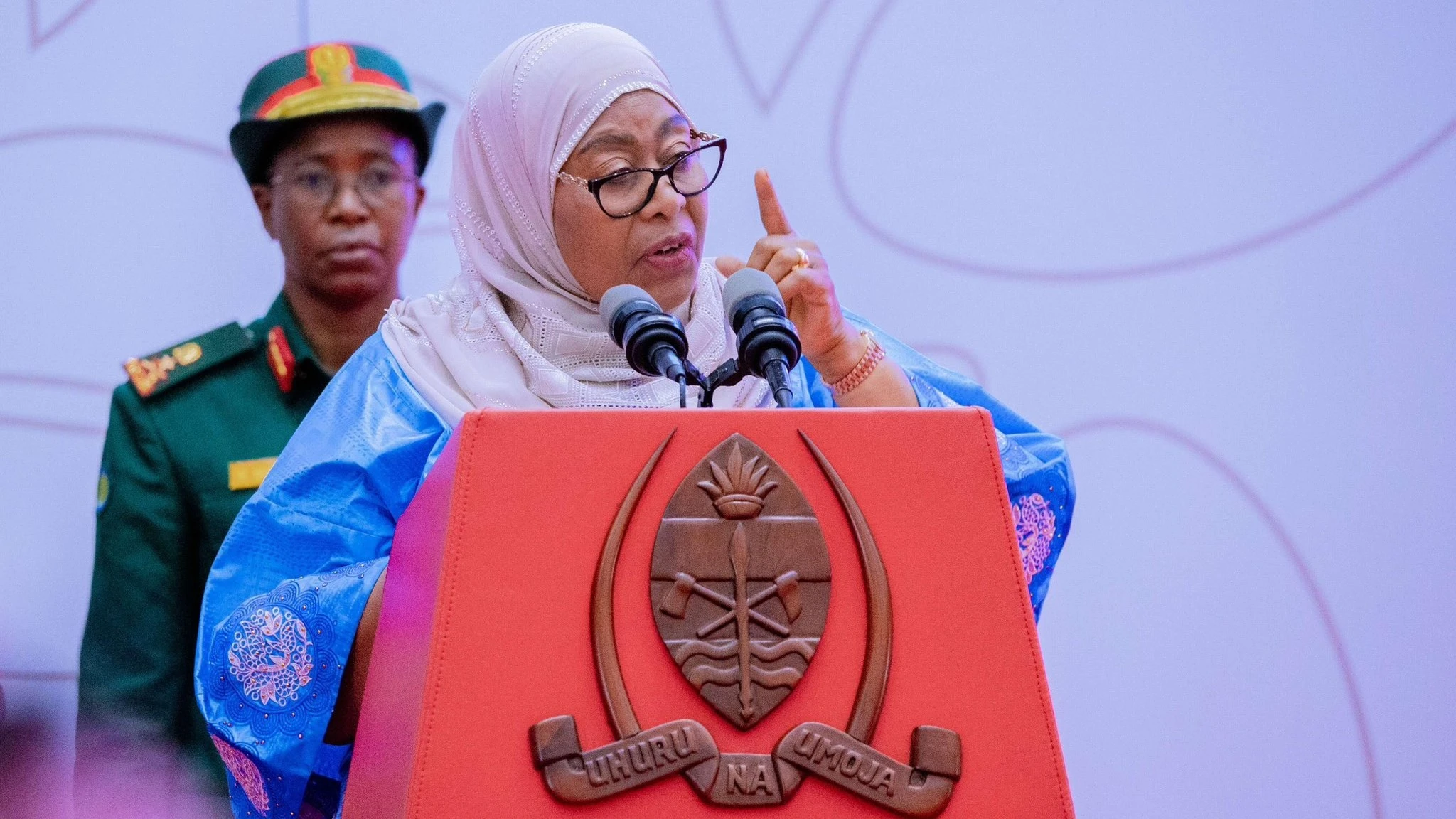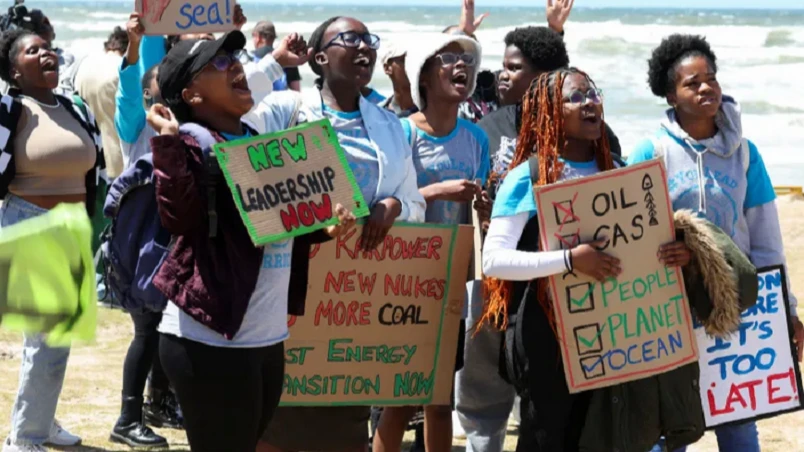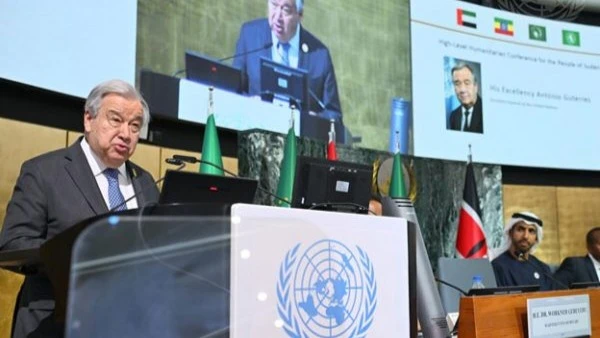SPECIAL REPORT: Acute challenges facing climate change resilience financing - 4

THE November 2024 United Nations Climate Change Conference (COP29) to be held in Baku, Azerbaijan, is just around the corner.
The United Nations Conference is expected to make a bold decision on a way forward towards financing climate resilience.
Government representatives from over 100 countries are expected to attend the conference and agree on a new annual financing target for helping poorer countries cut their emissions and protect their societies from rising temperatures.
The new target will replace the yearly $100 billion donation commitment put in place since 2009 by 43 developed countries listed under the UN Framework Convention on Climate Change (UNFCCC).
The conference comes when world leaders are skeptical of the present climate financing approach which has been missing targets.
At the ten-days preliminary UN climate meetings (SB 60) held in Bonn, Germany, in June this year, exposed the unyielding rifts among the world’s biggest economies over who should be paying most to fight climate change and how much.
In his opening remarks at the meeting, UN climate chief Simon Stiell called on nations to step up their efforts: “It is clear that climate protection measures must be taken at a much, much faster pace.”
As climate financing takes shape at the global stage as Tanzania’s government has started taking initiatives towards bridging the climate change financing gaps.
In April 2024, Deputy Minister of State in the Vice President’s Office (Union and Environment) Khamis Hamza Khamis told the National Assembly that the government is undertaking an amendment process of the present environmental law to give room for the establishment of the National Environmental Impact Trust Fund that will be mandated with the mobilization and planning of budgets for funding climate change resilience programmes.
Khamis said the anticipated funding strategy is expected to pave the way for mobilising credit for accelerating climate resilience programmes such as pushing for green building agenda, smart climate agriculture and preservation of nature.
He said the government’s decision comes after the parliament had in 2021 approved minor amendments in the National Environmental Policy 2021 that involved mitigation measures of climate change effects.
“The government recognizes the essence of having in place reliable sources of funds for addressing hazards and natural disasters related to climate change such as drought, floods and storms," said Khamis.
As climate change continues to remain the major global concern, Tanzania’s property developers and engineers are also considering going green for residential and commercial building projects.
Ipyana Moses Executive Secretary Tanzania Green Building Council (TGBC) said climate change is real and urgent. Therefore, policies and actions to mitigate its implications must be observed.
According to him, in Tanzania, an official movement was established in 2014 by the Tanzania Green Building Council (TZGBC).
He said the movement aims at spearheading the adaptation of a green design by raising awareness to Tanzania’s real estate through its activities like design intervention, buildings energy audit, material testing, and sustainable construction measures.
Moses said developers are ready and willing to adapt and implement the green building technologies as far as local tools are concerned and accepted at the global level.
He said TGBC is affiliated with the World Green Building Council (WGBC). Once a project is audited by TGBC then the WGBC is notified of the undertaking.
“More awareness is required to promote green building projects, now that TGBC is developing a local rating tool that could add value to the industry as experts are ready to assess the projects,” said Moses.
He said the Council works closely with private and public developers. During the inception of the TGBC there were a total of 64 organizations that supported green building which have as of today almost doubled.
“Planet earth is the only place we inhabit, if we can protect it by investing in structures that return to nature then mother earth will also reward us with less or no calamities like flooding, drought, extreme temperatures changes in weather patterns and increase in sea levels;
But if we just invest in buildings that do not consider the surrounding environments from design to disposal of the structures, then we should expect worse to come,” Moses concluded.
The Intergovernmental Panel on Climate Change (IPCC) in its Climate Change 2014 Synthesis Report Summary for Policymakers states that there’s over a 95 percent probability that human actions over the past 50 years have warmed the planet.
In July 2023, the International Sustainability Standards Board (ISSB) of the International Financial Reporting Standards (IFRS) Foundation published the General Requirements for Disclosure of Sustainability-related Financial Information (IFRS S-1) and the Climate-related Disclosure (IFRS S-2).
The two disclosures encourage companies to start collecting data and build internal capacity.
For example, the Taskforce on Naturerelated Financial Disclosures (TNFD) has been engaging companies since 2022 and has developed guidance for companies to assess and disclose their impacts, dependencies, risks and opportunities associated with nature.
It states that in the past two years, 140 financial institutions with €19.7 trillion in assets under management have signed the Finance for Biodiversity Pledge.
Institutional investors are convening through the Nature Action 100 programme to engage with companies and policymakers on nature.
The programme encourages financial institutions to play an important role in the nature-positive transition by regularly screening and assessing investor portfolios for biodiversity risks, engaging with high-risk investors and mobilizing internal and external stakeholders.
The global 2024 Gen Z and Millennials Report state that protecting the environment must be a top priority by employers.
The Gen Zs and Millennials, want to see employers prioritize visible actions that enable their employees to be directly involved in environmental conservation and donations.
On the other hand, the concept of smart properties is being encouraged across the globe for the purpose of sustaining nature and fighting climate change.
According to the University College of Estate Management a smart property is a building that uses automated processes to automatically control the building's operations such as heating, ventilation, air conditioning, lighting, security, and other systems.
By reducing energy consumption, mitigating environmental impact, and promoting efficient land use, these structures contribute to a more livable and eco-friendly urban environment.
Cairo, Cape Town, Lagos, Rabat, Abuja, Accra, Algiers and Tunis are some of Africa's cities that have since the past five years embarked on smart properties projects as part of climate change adaptation measures.
In the East African region, Kigali and Nairobi are taking the same course at an incredible pace. Rwanda has big plans with its planned Vision City mirroring outstanding tech development. The project is intended to construct 4,500 units to house approximately 25,000 people in Kigali city.
Kenya’s efforts to create a smart city are well under way which explains its Silicon Savannah branding including the Konza Techno City.
In Tanzania, initiatives for developing smart cities have been in place since the past six years with some projects kicking off at a snail’s pace and others suspended for financial reasons.
The Dege Eco Village satellite project worth 1.4trn/- in Kigamboni Dar es Salaam for instance was dropped by the implementing agency-the National Social Security Fund (NSSF) about four years ago.
The Kawe Safari City in Dar es Salaam and the Usa River Satellite City in Arusha are slowly taking shape in the midst of financial and management challenges.
North America is a leading market for smart buildings, with the United States and Canada at the forefront of adopting advanced building technologies. Canada is also part of the fast changing world with smart buildings.
In Europe, countries such as Germany, the United Kingdom, France, and the Nordic countries are leading the course while China and India are showing incredible progress with some countries of the Middle East adopting smart building technologies.
To be continued.
Top Headlines
© 2025 IPPMEDIA.COM. ALL RIGHTS RESERVED

























